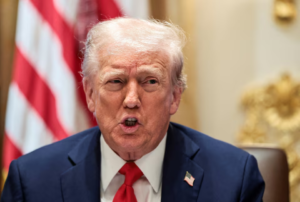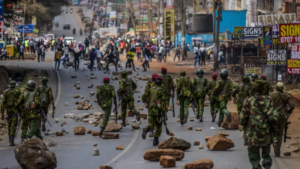The upcoming sex trafficking trial of music mogul Sean “Diddy” Combs represents one of the most consequential celebrity criminal cases in recent memory. Facing charges that include:
- Operating a criminal enterprise involving sex trafficking
- Multiple counts of sexual assault
- Kidnapping and forced labor allegations
- Potential life imprisonment if convicted
The trial’s outcome may hinge on the often-overlooked but critical process of jury selection, where attorneys will employ sophisticated psychological profiling techniques to shape the panel that will decide Combs’ fate.
The Psychology Behind Jury Selection: What Questions Reveal About Jurors
The Cheating Spouse Litmus Test
One surprising line of questioning may involve potential jurors’ attitudes toward infidelity. As jury consultant Robert Hirschhorn explains:
“If the judge allows it, I might ask potential jurors if they could compartmentalize their significant other cheating, or whether that would forever affect the relationship. The answer helps gauge if they could get past the violent Cassie Ventura video.”
This approach serves multiple purposes:
- Assessing Emotional Resilience: Can jurors separate emotional reactions from factual analysis?
- Predicting Forgiveness: Will they hold the video against Combs regardless of other evidence?
- Identifying Rigid Thinkers: Those who can’t move past betrayal may struggle with reasonable doubt
Lifestyle and Cultural Bias Questions

The defense has proposed probing jurors about:
- Music preferences (particularly hip-hop/rap)
- Views on alternative sexual lifestyles (swinging, non-monogamy)
- Group decision-making tendencies
- Political commentary consumption
These questions aim to uncover hidden biases that could influence verdicts. As social psychologist Eric Rudich notes: “Questions about hip-hop culture may reveal attitudes favoring one side without explicit racial bias.”
The Prosecution’s Playbook: Building a Conviction-Minded Jury
Federal prosecutors are expected to focus on:
- Sexual Trauma Survivors: Women with experiences of unwanted sexual contact
- Government Trusters: Those with positive views of law enforcement
- Community-Minded Individuals: Jurors who value social responsibility over celebrity
Their proposed questionnaire includes questions about:

- Experiences with sexual assault
- Interactions with government agencies
- Beliefs about power dynamics in relationships
The Defense Strategy: Hunting for Holdouts
Combs’ legal team faces different mathematical realities than prosecutors:
- Prosecution Needs: 12/12 jurors to agree for conviction
- Defense Needs: Just 1/12 holdout for hung jury
This informs their ideal juror profile:
- Non-Conformists: Those resistant to groupthink
- Counterculture Affiliates: People in alternative lifestyle communities
- Skeptics of Mainstream Narratives: Consumers of contrarian media
- Due Process Advocates: Individuals emphasizing presumption of innocence
As former federal prosecutor Mitchell Epner observes: “The defense wants iconoclasts who resist dominant cultural narratives.”

The Cassie Ventura Video: Trial’s Emotional Lightning Rod
The hotel surveillance footage showing Combs assaulting Ventura presents unique challenges:
Prosecution Position:
- “Devastating proof” of sex trafficking pattern
- Demonstrates violent control over victims
Defense Counter:
- Allegations of video tampering
- Argument that it proves domestic violence, not trafficking
- Claim it’s prejudicial rather than probative
Jury consultants suggest the video’s impact will depend on:
- How early it’s introduced
- Whether jurors see it as part of a pattern
- If the defense can provide alternative context
Demographic Considerations in a High-Profile Case
While attorneys can’t strike jurors solely based on race, they employ sophisticated profiling:
Potential Defense Preferences:
- Younger jurors more familiar with hip-hop culture
- Those in creative industries
- Individuals with complex relationship histories
Potential Prosecution Preferences:
- Older, more conservative jurors
- Parents of teenage/young adult daughters
- Victims’ rights advocates
The Science of “De-Selection”: Eliminating Worst Jurors
As Rudich explains: “Jury selection is really jury de-selection. It’s about eliminating people who’d be really bad for your case.”
Common elimination criteria include:
- Fixed-Mindset Individuals: Those unwilling to reconsider initial impressions
- Moral Absolutists: People with black-and-white ethical frameworks
- Celebrity Obsessives: Both fans and detractors of Combs
- Authoritarian Personalities: Those deferring unquestioningly to power
The Shadow Jury Strategy: How Wealthy Defendants Prepare
Combs’ team likely employed:
- Focus Groups: Mock trials with demographic-matched participants
- Community Surveys: Gauging local attitudes toward the case
- Psychometric Testing: Developing ideal juror profiles
- Voir Dire Simulations: Practicing questioning techniques
These methods help identify:
- Which arguments resonate with different demographics
- How jurors process complex evidence
- Which witness testimony proves most damaging
The Hung Jury Calculus: When 1 Equals Victory
For the defense, a hung jury represents a strategic win because:
- Prosecutorial Fatigue: DA’s office may decline retrial
- Witness Availability: Victims may be unwilling to testify again
- Financial Strain: Resources needed for multiple trials
- Publicity Diminishment: Media attention typically wanes
This explains the defense’s focus on finding just one sympathetic juror rather than convincing the entire panel.
The Cultural Context: Hip-Hop, Celebrity, and Justice
The trial occurs amid:
- Growing scrutiny of hip-hop’s treatment of women
- #MeToo movement’s expansion into music industry
- Debates about separating art from artist
- Conversations about race and sentencing disparities
These undercurrents will subtly influence juror perceptions regardless of explicit bias.
The Long-Term Implications Beyond Combs
This case may establish precedents for:
- Celebrity Trial Strategies: New jury selection approaches
- Sex Trafficking Prosecutions: Evidence standards
- Media Interactions: Managing pretrial publicity
- Alternative Lifestyle Defenses: Acceptance in court
The verdict could ripple through entertainment, legal, and activist communities for years to come.
Conclusion: Why This Jury Selection Matters More Than Most
The composition of Diddy’s jury may prove more determinative than in typical cases because:
- Emotional Evidence: The Ventura video’s visceral impact
- Cultural Divides: Hip-hop’s complex relationship with mainstream
- Power Dynamics: Celebrity versus institutional power
- Legal Novelty: Rare intersection of trafficking and domestic violence claims
As the legal teams prepare for voir dire, their juror questionnaires and questioning strategies reveal much about how they’ll frame this high-stakes battle – one where the jury selection may effectively decide the case before testimony even begins.




